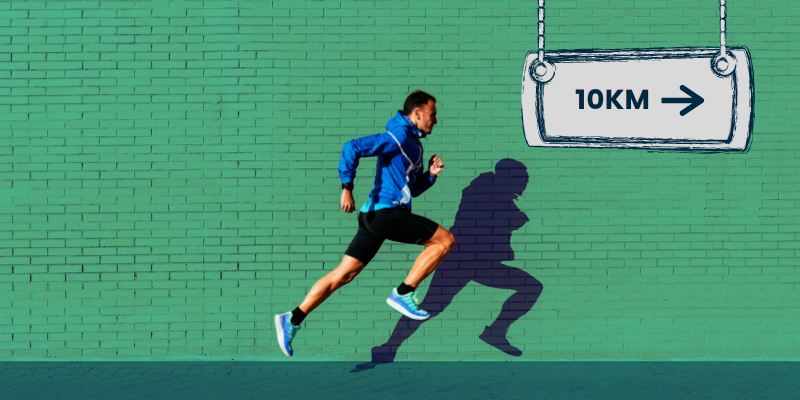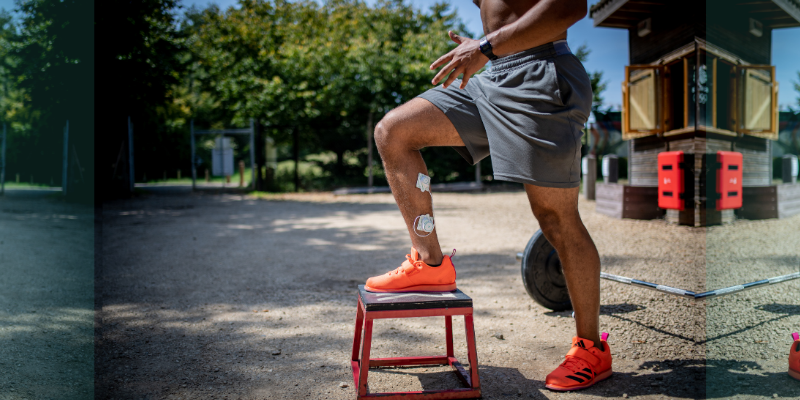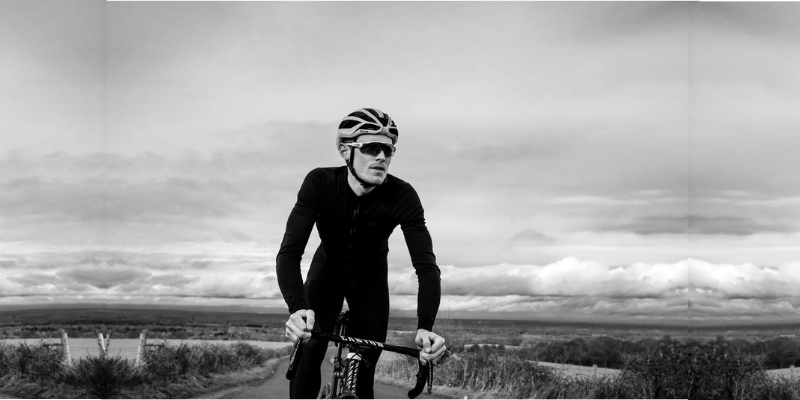
You might think that an ultra-distance runner, who’s covered over 260km in one day, wouldn’t be too worried about running ‘just’ 10km - but it’s an entirely different beast. The 10km distance is the toughest distance for many endurance athletes. Short enough that you have to run really fast and long enough that it never seems to end.
NuroKor ambassador Robbie Britton had been preparing for the StraMagenta 10k near Milan - which unfortunately got cancelled. But he is already looking for his next 10km target race!
Similarly, if your 'race' options are limited with current COVID restrictions, there are plenty of virtual and online alternatives. Nice Work is a UK organisation with monthly charity-supporting race challenges - to help you set a goal and stick to it!
Here are TEN tips from ultra-runner and coach, Robbie Britton to help you prepare for your best ever 10km:
1) Shape a training plan

Don’t just go out there and run as hard as you can everyday. You need a plan in order to prepare for your best ever 10km. Either shape this training plan or get guidance from a coach. Train smarter, not harder.
2) Practice makes perfect

Find and practice at your race pace before race day. It’s a fine line between going too hard and getting it just right over the shorter distances. Dialling into how quickly to go in the first few kilometres is a definite skill.
3) Don't forget to recover

When training for a 10km you will do some hard sessions. Make sure you respect the recovery needed and don’t put hard sessions too close together or too close to race day. Make recovery part of your training plan.
4) Use bioelectronics

Bioelectric therapy such as NuroKor can be a great aid for recovery, especially after those particularly tough sessions! Find out what works for you, but using your NuroKor device on the recovery setting, even if that is sitting on the sofa, can massively help optimise your muscle recovery.
5) Fuel up!

Think about your fueling for the event. Unlike a marathon you’ll not be taking on gels along the way, but you want to have enough energy stored to last the time of the event. That might come in the form of a good breakfast or even a gel 10-15 minutes before the start, but have a plan.
6) Prepare strategically

As you get closer to your race date think about a taper. General rule of thumb is to reduce overall volume, whilst maintaining frequency and intensity. But people often misinterpret this and actually go faster in their taper, simply because they’re feeling fresher. Keep the legs ready for race pace in your taper, but don’t go all out a few days before the race and take something away from your race performance.
7) Keep your pace consistent

The 10k distance involves going hard from the start, for me at least. Plenty of other distances you ease into a bit and build up, but if you want to PB over 10km, then you need to be on it from the gun. Saying that, know what pace you want to do and fight the urge to go harder in the exciting race start.
8) A mental game

When it gets tough in your race there are mental skills you can use to keep you pushing to the finish line, and this can be practiced in your training too. Self-talk is one that I use, shouting in my head to ‘keep going strong Robbie’ or ‘head up and drive those arms, get to the next corner’. Talking to yourself in the third person is actually more effective.
9) Give it your best effort

Don’t get too caught up in times on the day. We all give ourselves targets of round numbers or PBs of friends, but it’s most important to give it your best effort. At halfway you might see you’re off your target and your head drops. But that could be down to a headwind on the way out, a poorly placed marker or a downhill to come. Focus on doing your best and you’ll reap the benefits.
10) Keep smiling!

Whatever happens, try to keep a smile on your face in those latter stages and pick off each kilometre one by one. If you have a tough race, then just see it as an opportunity to learn for the future.
Robbie Britton is a Great Britain ultra-marathon athlete and UKA coach. He has a MSc in Performance Coaching and is currently studying the IOC Sports Nutrition Diploma. In 2015 he was a bronze medallist in the 24-hour Running World Championships, achieving 261km. Follow Robbie’s journey on Instagram @ultrabritton



